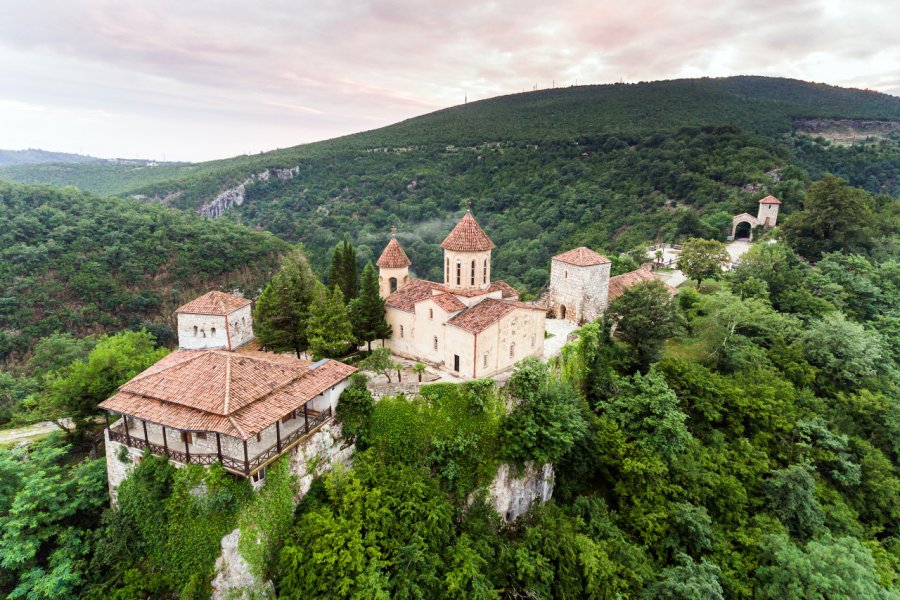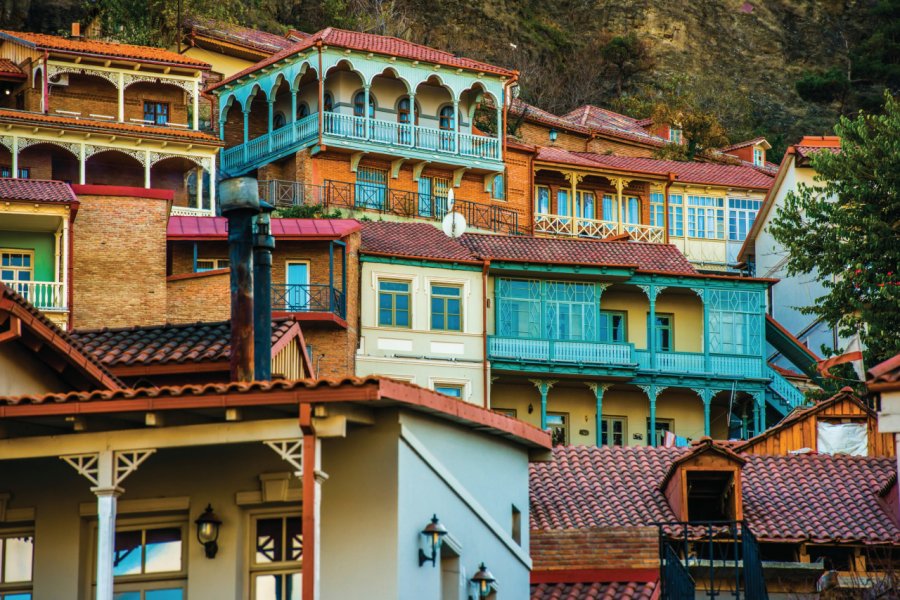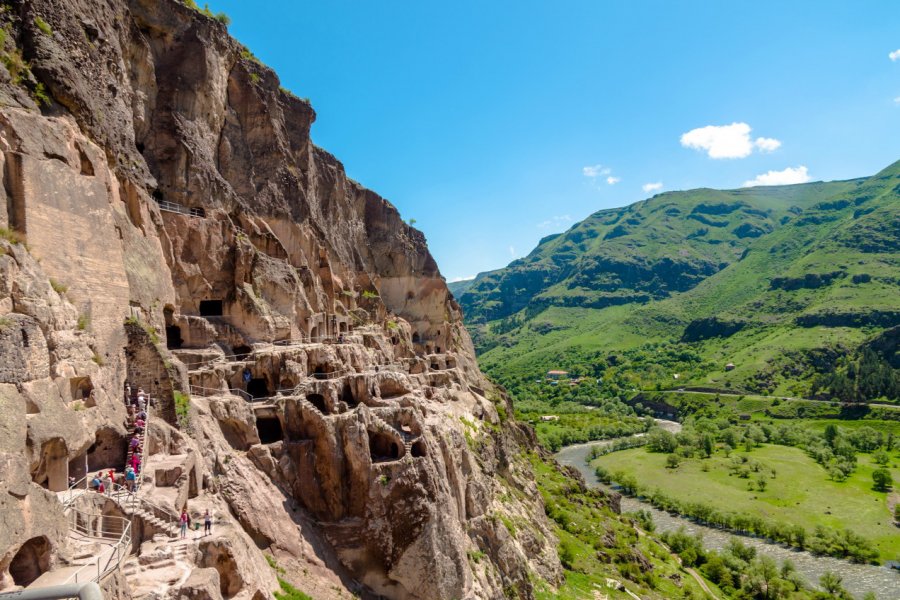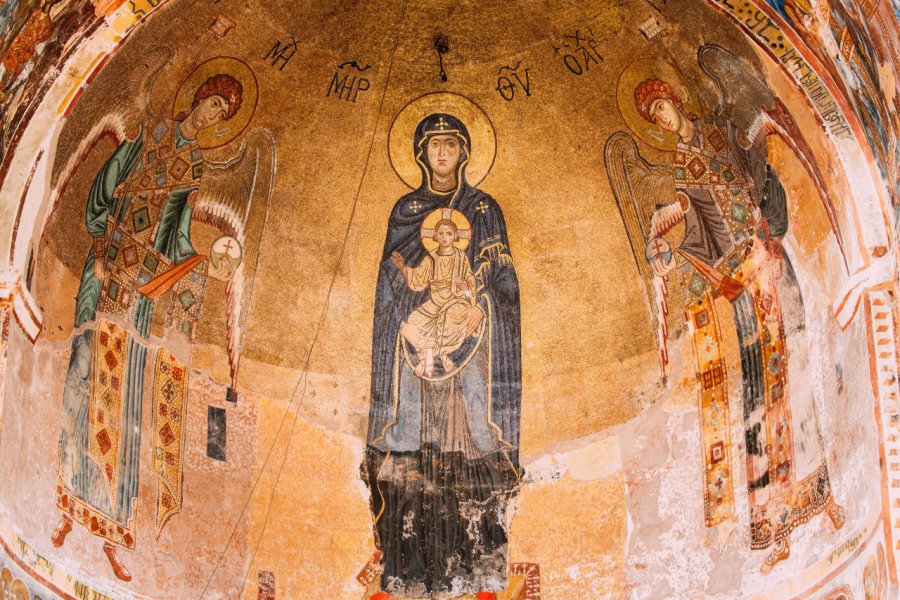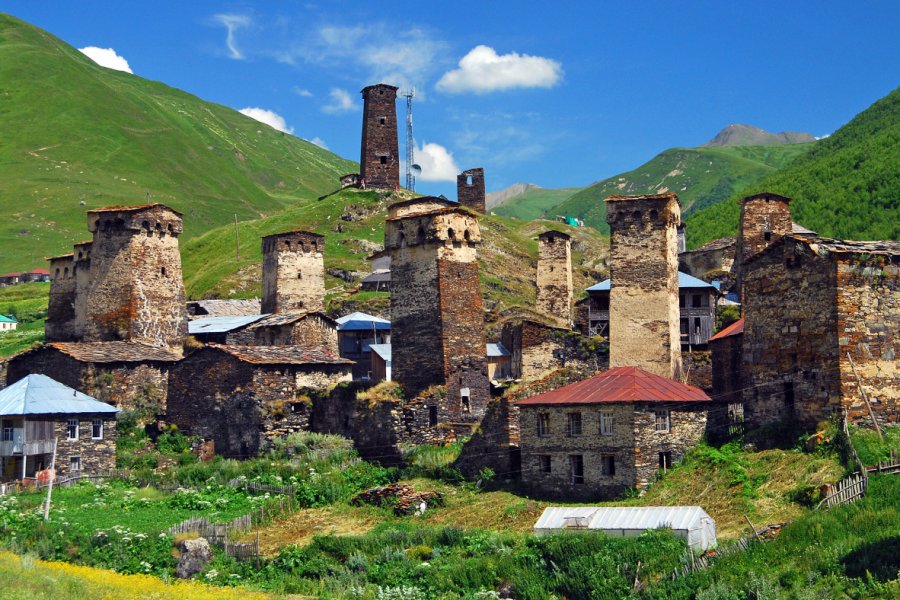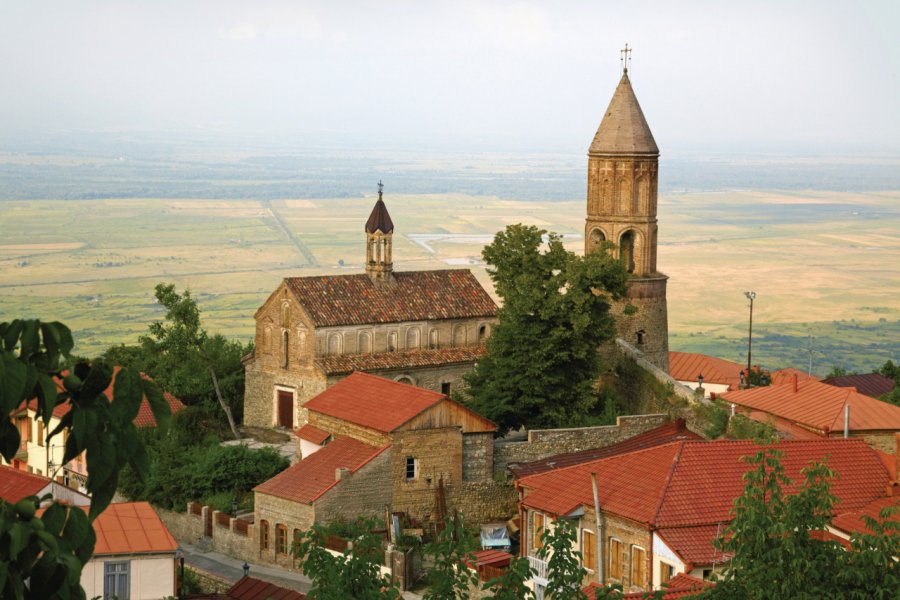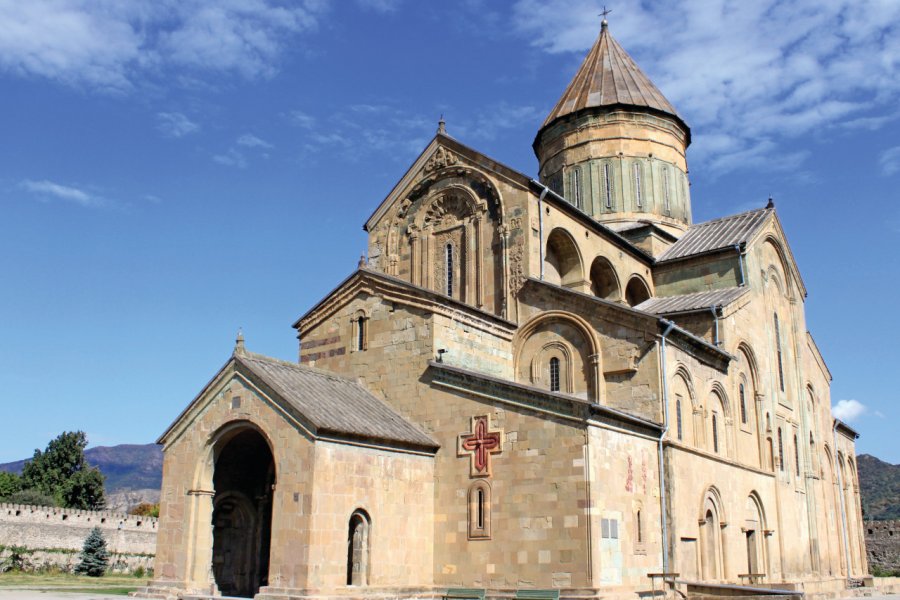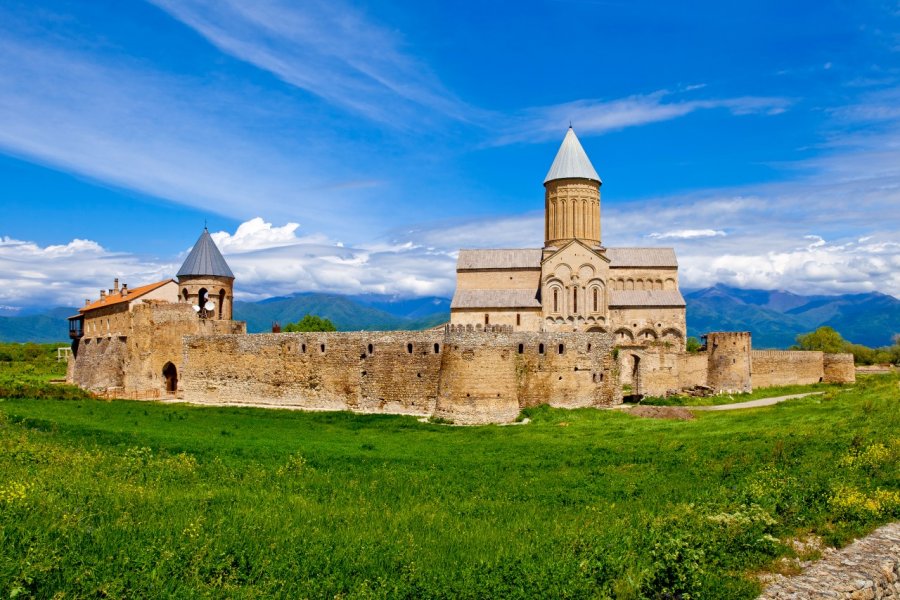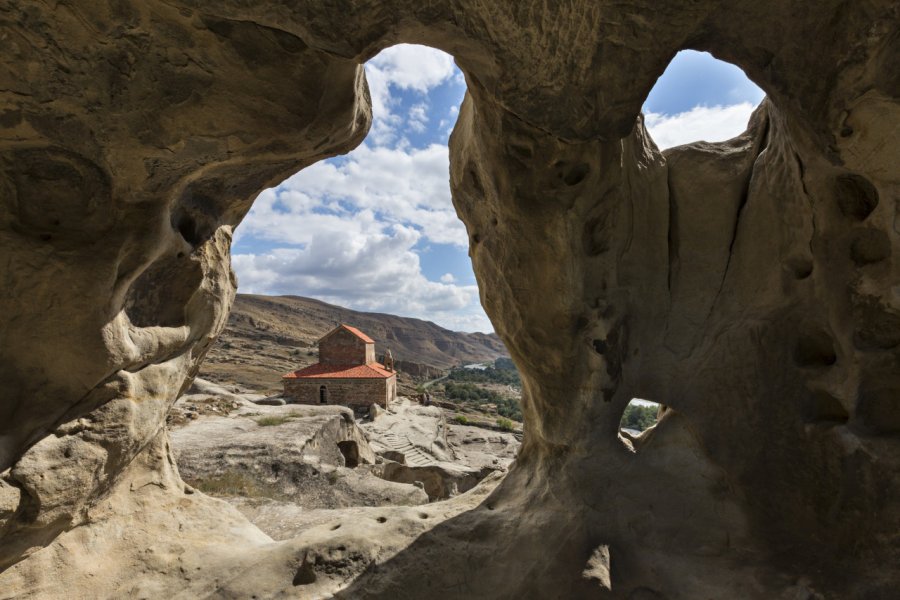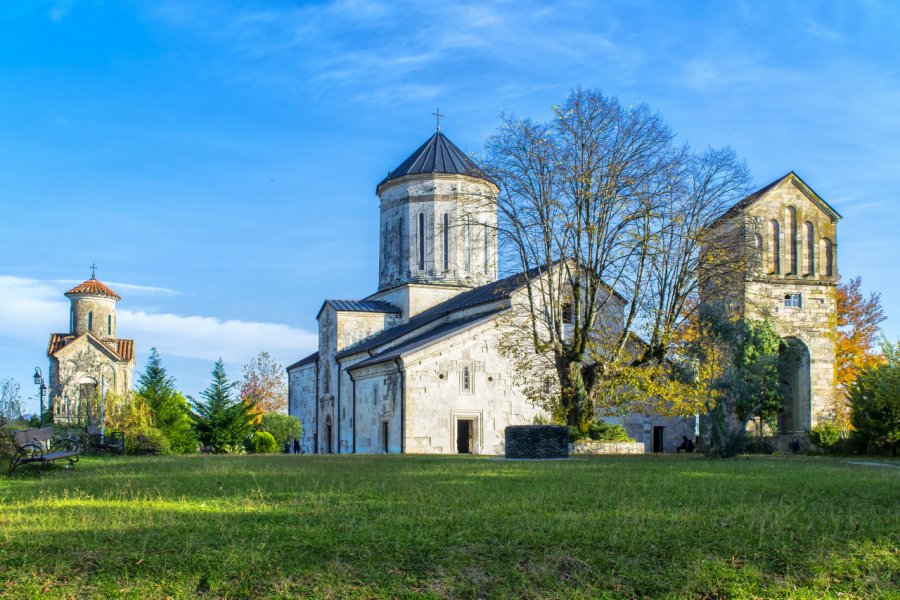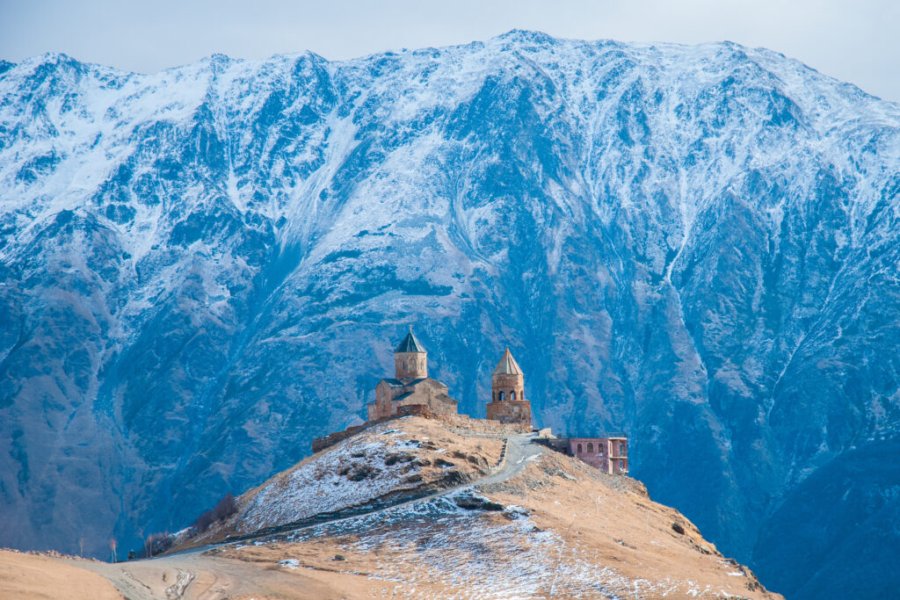Why go to Georgia? The 10 good reasons to go Georgia

Tbilisi's old town
Tbilisi is a fascinating place, with a unique cultural wealth that is part Persian, part Ottoman, part Russian.

Sumptuous monasteries
Perched on cliffs in the heart of improbable sites, they are worth the trip alone.

A world of traditions
The beauty of the polyphonic songs, the crafts and the unique folklore will delight you.

Landscapes of great diversity
From the subtropical Black Sea coast to the steppes of the southeast, Georgia is a diverse country.

The mountains of the Caucasus
The Caucasus, untouched by human activity, is breathtakingly beautiful.

Ecotourism paradise
The Caucasus and national parks are a paradise for lovers of wide open spaces and sports.

Fortified medieval villages
Many villages with their unique architecture were once cut off from the world.

Epicure's world
Feast on excellent cuisine and explore Kakhetia's wine cellars!

Infinitely rich architecture
From the wrought-iron balconies of Tbilisi to the troglodyte cliffs, unique architecture.

The hospitality of the locals
Here, the traveller is a guest and Georgians show genuine hospitality.
What to visit Georgia?
Good to know to visit Georgia
 Timetable
Timetable
Museums are generally open from 10am to 6pm, closed on Mondays for the most part, check their website before your visit. They are closed on Christmas Day.
 To be booked
To be booked
If you'd like to do some wine tasting during your stay, we advise you to book in advance, especially if it's at a family winery, to give your hosts time to prepare for your arrival.
 Budget & Tips
Budget & Tips
A trip to Georgia can be very affordable if you sleep in family-run guesthouses and travel by public transport. Going out is also fairly inexpensive.
Culture remains affordable in Georgia, with entrance fees for museums and other tourist sites fairly moderate, ranging from 5 to 25 GEL. The increase has been quite marked in recent years, however, and is accentuated by the fact that there is now very often a difference in price between Georgians and foreigners. In this guide, we have indicated the rates for foreigners.
 Main events
Main events
Georgia is a very religious country, punctuated throughout the year by Orthodox festivals. St. George's Day is celebrated on November 23 and May 6, Orthodox Christmas in January, and Easter and the Assumption, among others, are major events in the country. Pagan festivals are not to be missed, such as the harvest in September-October in Kakhetia. Music, folklore, theater and film festivals are mostly held in summer in Tbilisi (Art Gene Festival in July; there is also a film festival in December), and music festivals are very well known in Batumi, such as the Jazz Festival in July.
 Guided tours
Guided tours
Tbilisi's old town is packed with travel agencies on Kote Abkhazi Street, the street linking Liberty Square to Meidan Square. Neighboring each other, they all offer the same type of tours for around the same price, 60 GEL per day. You can visit Tbilisi's immediate surroundings, such as Mtskheta and nearby religious sites. Other tours offer destinations further afield, such as Borjomi, Gori, David Garedja and all the other Georgian sights, but be warned: the daily schedule for these sites is very full, so the time you have to spend there is likely to be very short.
Right next to the Tbilisi Tourist Office, near Freedom Square, you'll find the big red buses for those in a hurry or who can't explore the city comfortably on foot.
Walking tours of Tbilisi are also organized, departing from the same place every Saturday at 12 noon.
Generally speaking, travel agencies can organize themed tours with English-speaking or sometimes French-speaking guides throughout the country. Treks in the Greater or Lesser Caucasus, horseback riding, wine routes in Kakhetia, historical or archaeological cultural tours, ethnological tours, local tours, sports tours, or tours exploring Armenia or Azerbaijan: the choice is yours.
 What's very local
What's very local
Modest dress is advisable, as Georgian society is conservative. When visiting religious sites, avoid shorts or sleeveless T-shirts - men and women alike. Women wearing pants should cover their pants with a cloth, often provided at the entrance to the church, as well as their shoulders and hair.
